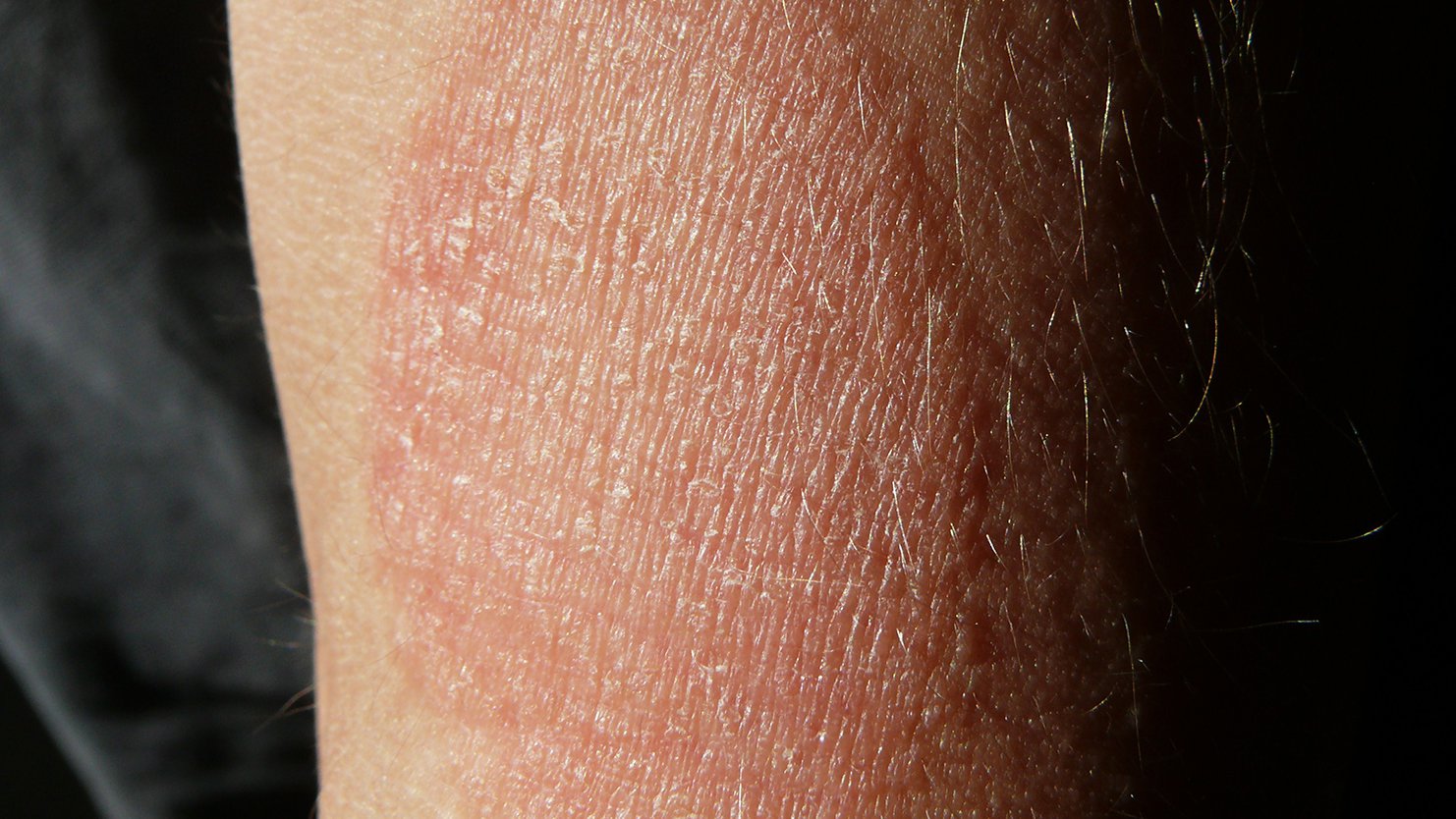Red, dry and flaky skin
Red and fragile skin around your eyelids, a burning sensation on your neck, itchy elbows and irritation behind your knees. Eczema, or atopic dermatitis, is a common condition. It usually begins at a young age, and half of all babies and young children who suffer from the condition will grow out of it around puberty. A much smaller percentage of people develop eczema during adulthood. Eczema occurs when the skin is out of balance. It does not retain moisture well, which in turn allows harmful bacteria to flourish and enter the body. This triggers inflammation in the skin that can lead to dryness, flaking and irritation. People with eczema often also have an increased risk of other allergic conditions, such as hay fever and asthma.
Importance of skin microbes
Although there is disagreement within the scientific community regarding whether eczema is genetic or is caused by one's environment, it seems that the micro-organisms that live on the skin can tell us more about the condition. This so-called skin microbiota consists of numerous strains of bacteria that live in harmony and are important for the health of your skin. Previous research found a pattern between the occurrence of eczema and the types of skin microbes that were present or absent in such cases. This suggested that the bacterial ecosystem on the skin plays a role in the development of the condition. Other research has shown that eczema patients generally tend to have more Staphylococcus aureus bacteria living on their skin. These bacteria can cause skin infections as well as immune responses that exacerbate symptoms.
Roseomonas mucosa
There is still no effective treatment for eczema. Researchers from the American National Institute of Allergy and Infectious Diseases recently tried an unconventional new approach: the application of live skin bacteria from healthy individuals. The scientists covered the skin of a small group of children and adults with live Roseomonas bacteria. For six to twelve weeks, the R. mucosa bacteria were sprayed onto their eczema several times each week. Studies in mice and on human skin cells have previously shown that R. mucosa was able to alleviate eczema symptoms. The severity of the symptoms and the need for medication dropped by more than 50% following the treatment, and the presence of the S. aureus bacteria decreased. The results achieved with just one bacterial strain are very promising. The method is less expensive than existing, often long-term treatments, and the effects remained noticeable for months. By using multiple types of benign skin bacteria and fungi, the treatment can be optimised and possibly even customised for each individual patient.
Source: Insight

